Zoek artiesten, songs en albums op in onze database.
- A Proper Introduction
- Antonio Carlos Jobim
- Plainclothes Man
- Condor Ave.
- Last Call
- Needle in the Hay
- Biggest Lie
- Ballad of Big Nothing
- Say Yes
- Angeles
- Baby Britain
- Miss Misery (Piano version)
- Pitseleh
- Everything Reminds Me Of Her
- cecelia/amanda
- King's Crossing
- Coast To Coast
- High Times
- Angel in the Snow
- Dancing on the Highway
- Mr. Good Morning
- (Don't Fear) The Reaper
- Jealous Guy
- Elliott Smith (1995)
- Needle in the Hay
- Christian Brothers
- Clementine
- Southern Belle
- Single File
- Coming Up Roses
- Satellite
- Alphabet Town
- St. Ides Heaven
- Good to Go
- The White Lady Loves You More
- The Biggest Lie
- Roman Candle (1995)
- Roman Candle
- Condor Ave.
- No Name #1
- No Name #2
- No Name #3
- Drive All Over Town
- No Name #4
- Last Call
- Kiwi Maddog 20/20
- Either/Or (1997)
- Speed Trials
- Alameda
- Ballad of Big Nothing
- Between the Bars
- Pictures of Me
- No Name No. 5
- Rose Parade
- Punch and Judy
- Angeles
- Cupid's Trick
- 2:45 AM
- Say Yes
- XO (1998)
- Sweet Adeline
- Tomorrow Tomorrow
- Waltz #2 (XO)
- Baby Britain
- Pitseleh
- Independence Day
- Bled White
- Waltz #1
- Amity
- Oh Well, Okay
- Bottle Up And Explode!
- A Question Mark
- Everybody Cares, Everybody Understands
- I Didn't Understand
- A Brief History (1998)
- Tomorrow Tomorrow
- Waltz #2 (XO)
- Miss Misery
- Pictures of Me
- Say Yes
- Southern Belle
- Coming Up Roses
- No Name #1
- Last Call
- Division Day
- Some Song
- Figure 8 (2000)
- Son Of Sam
- Somebody That I Used To Know
- Junk Bond Trader
- Everything Reminds Me Of Her
- Everything Means Nothing To Me
- L.A.
- In the Lost and Found (Honky Bach)/The Roost
- Stupidity Tries
- Easy Way Out
- Wouldn't Mama Be Proud?
- Color Bars
- Happiness/The Gondola Man
- Pretty Mary K
- I Better Be Quiet Now
- Can't Make a Sound
- Bye
- Happiness (2000)
- happiness
- dig
- alienlover
- Division Day / No Name #6 (2000)
- Division Day
- No Name #6
- From a Basement on the Hill (2004)
- Coast To Coast
- Let's Get Lost
- Pretty (Ugly Before)
- Don't Go Down
- Strung Out Again
- A Fond Farewell
- King's Crossing
- Ostrich & Chirping
- Twilight
- A Passing Feeling
- The Last Hour
- Shooting Star
- Memory Lane
- Little One
- A Distorted Reality Is Now a Necessity to Be Free
- New Moon (2007)
- Angel in the Snow
- Talking to Mary
- High Times
- New Monkey
- Looking Over My Shoulder
- Going Nowhere
- Riot Coming
- All Cleaned Out
- First Timer
- Go By
- Miss Misery (Early Version)
- Thirteen
- Georgia, Georgia
- Whatever (Folk Song in C)
- Big Decision
- Placeholder
- New Disaster
- Seen How Things Are Hard
- Fear City
- Either/Or
- Pretty Mary K (Other Version)
- Almost Over
- See You Later
- Half Right
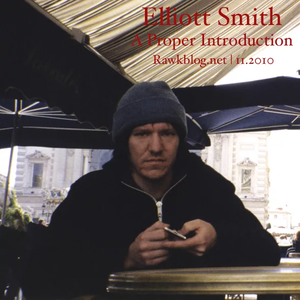
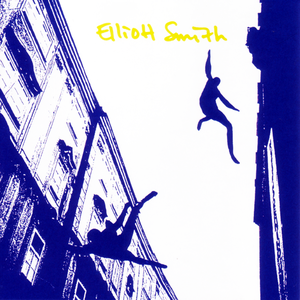
Elliott Smith is the second album recorded by American singer-songwriter Elliott Smith. It was released by Kill Rock Stars on 21 July 1995 in CD and vinyl LP. It was Smith's first full-length release on the label. The album is mostly acoustic, in contrast to Smith's later works which were often more instrumentally layered. Thematically, Smith said that he "personally can't get more dark" than his self-titled album. Musical style The album is of a similar musical style to Roman Candle and Either/Or in its minimalist, acoustic sound. Smith mostly appears alone on his acoustic guitar, although he is occasionally backed up by the odd musical instrument, such as a harmonica and drums. The lyrics are arguably Smith's darkest and most cutting, dealing with subjects like substance abuse (St. Ides Heaven, Needle in the Hay) and loss (Good to Go), although the album does also have a comforting, gentler sound. Smith's gentle fingerpicking on the album has been noted by many critics, and the album has been described as a fusion of "the Beatles' pop sense with Neil Young's sense of doom". Read more on Last.fm.
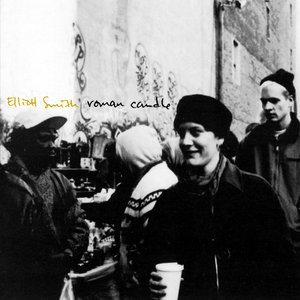
Roman Candle was Elliott Smith's debut album as a solo artist, even though he was still a singer and guitarist for the band Heatmiser. The album has a raw, homemade sound (see Lo-fi music), with Smith playing each instrument and recording it on his four-track recorder. Kid Tulsa (Pete Krebs) played snare and cymbal on tracks "No Name #1" and "Kiwi Maddog 20/20". According to the Elliott Smith biography, Elliott Smith and the Big Nothing, Elliott recorded the album in the basement of the home of then-girlfriend and Heatmiser manager J.J. Gonson. The album was never intended for release, as Smith only expected to get a deal for a seven-inch record, however, after Gonson played the album for Cavity Search Records, they immediately requested permission to release it in its entirety. Smith at first hesitated, and then allowed permission. On April 6, 2010, Roman Candle (remastered by Larry Crane) was re-released by Kill Rock Stars, now with a US vinyl version. Read more on Last.fm.

Either/Or is the name of the third album recorded by American singer-songwriter Elliott Smith. The album was released on Kill Rock Stars on 25 February 1997 on compact disc and vinyl LP. The title is derived from the Søren Kierkegaard book of the same name, reflecting Smith's interest in philosophy, something he studied (among other subjects) at Hampshire College in Massachusetts. Smith stated in a few interviews that the album follows the Kierkegaard philosophy in relation with the absurdist struggle between choosing an aesthetic life and an ethical life. Read more on Last.fm.
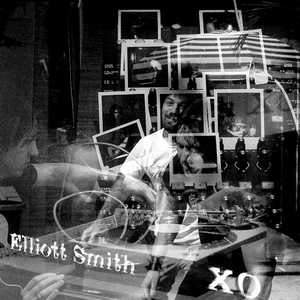
XO is the name of the fourth album recorded by American singer-songwriter Elliott Smith. Smith's first work on a major label, it was released by DreamWorks Records on August 25, 1998. Bong Load Custom Records released it on vinyl LP, which has since gone out of print. Vinyl copies of XO remained rare until a re-release by Plain Records in 2008. The album is also available as digital download. The singles from XO were "Waltz #2 (XO)" and "Baby Britain". An early working title for the album was Grand Mal. Smith recorded numerous songs during the XO sessions that did not make it to the album. Read more on Last.fm.
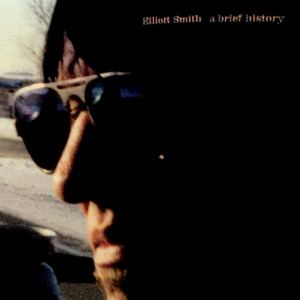

Figure 8 is the fifth studio album by American singer-songwriter Elliott Smith. Released by DreamWorks Records on April 18, 2000, it became Smith's second release on a major label and the last album he would complete before his death. It was recorded at Sunset Sound in Hollywood, Sonora Studios in Los Angeles, Capitol Studios in Hollywood, and Abbey Road Studios in London ("Stupidity Tries", "In the Lost and Found (Honky Bach)" and "Pretty Mary K"). The album was also released on double vinyl 12" on Bong Load Custom Records, and later rereleased by Plain Records in 2008. It is also available as a digital download. The title is thought to be taken from a song by Schoolhouse Rock!. Smith covered this song, but it did not make the final track listing. Compared to Smith's earlier work, Figure 8 is more instrumentally ornate, and the lyrics are more impressionistic. Smith described the songs on the album as "more...fragmented and dreamlike" Read more on Last.fm.



From a Basement on the Hill is the sixth and final studio album by the late singer-songwriter Elliott Smith. Released posthumously on October 19, 2004 by ANTI- Records in CD, double LP, and digital download, it peaked at #19 in the US and #41 in the UK. The album was incomplete at the time of Smith's death. Smith's family hired his former producer Rob Schnapf and ex-girlfriend Joanna Bolme to sort through and put the finishing touches on the batch of over 30 songs that were recorded for the album. Many of the songs Smith intended for the album remained unfinished, in some cases only lacking vocals. Read more on Last.fm.
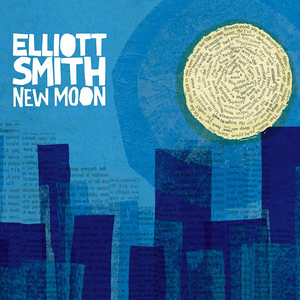
unreleased tracks Read more on Last.fm.